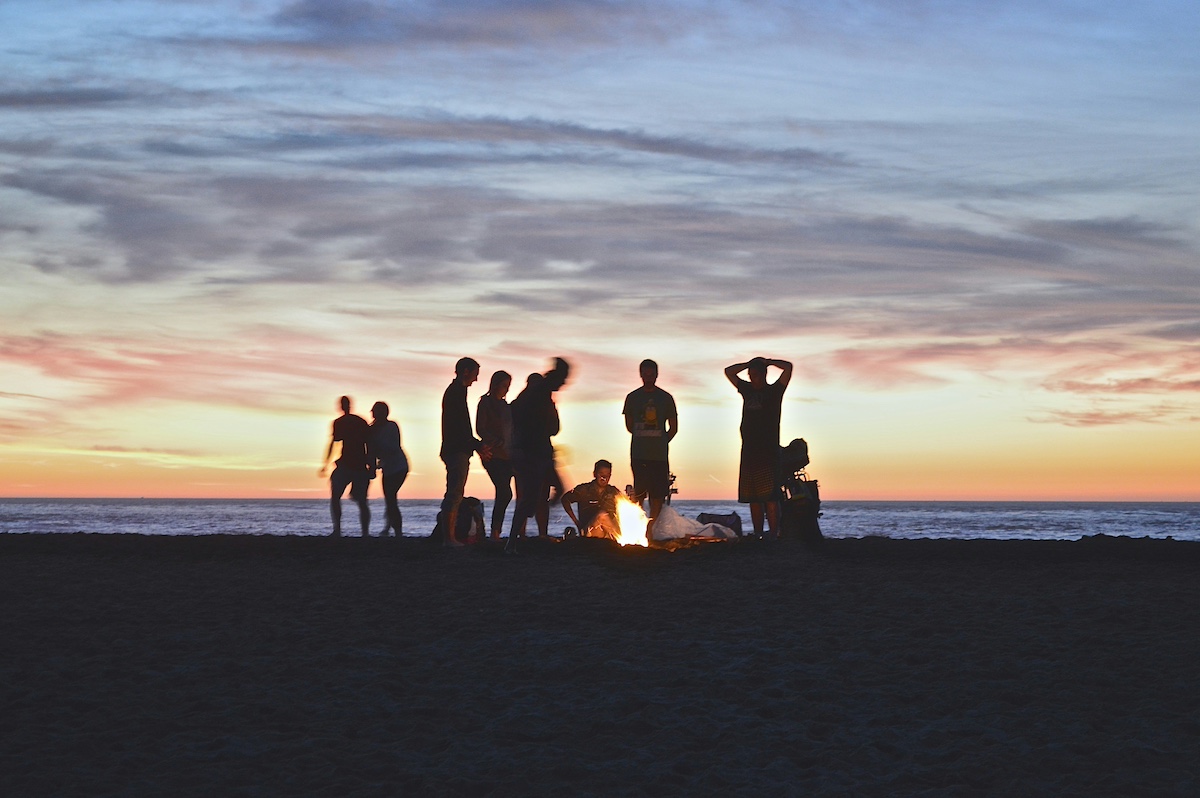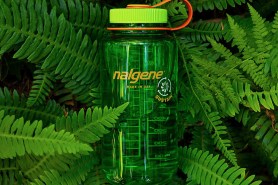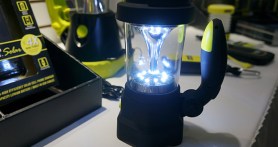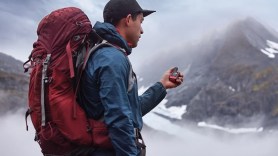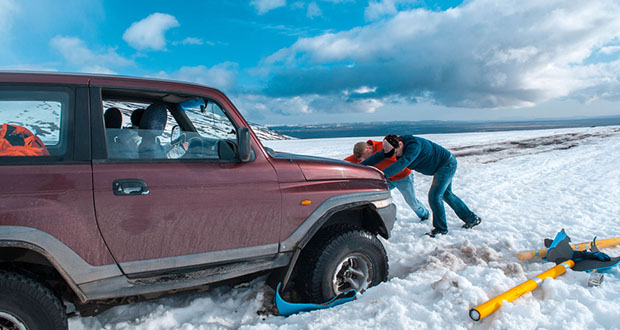

Everything is going perfectly as you set off for an outdoor adventure. You watch the buildings slowly trade places with forests and fields as you get farther away from the city when, BAM! Your vehicle wobbles to a halt and you find yourself miles from the nearest town. After letting out a few choice words. Your next thought might be, “I wish I had packed a…”
Videos by Outdoors with Bear Grylls
Getting stranded on the side of the road is never a fun experience. However, if you remember to pack a few things before hitting the wilderness road, you can avoid certain unpleasantries and possibly never get stuck again. This is not an exhaustive list, but these essentials can save you from a lot of trouble.
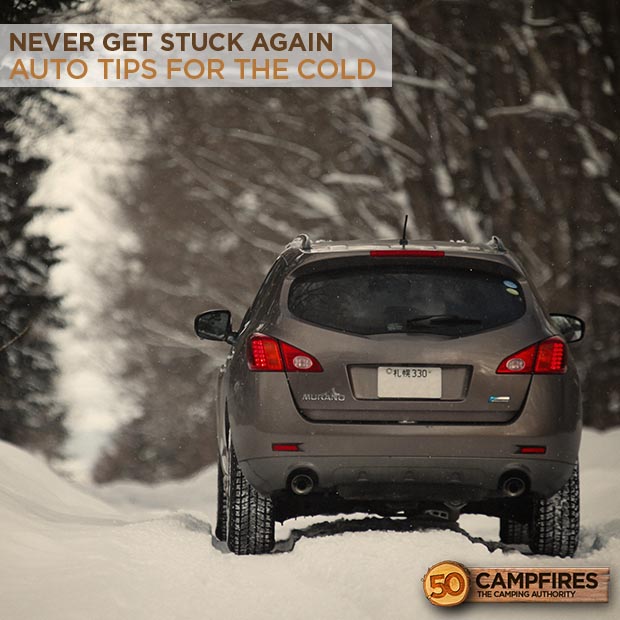
Tires & Vehicle Gear
When you get a flat tire there are three options: (1) you change it yourself, (2) you try a Fix-A-Flat style tire inflator, or (3) you call for help and wait. As a safety precaution it’s always best to be prepared for the worst instead of hoping help will come before you freeze in your vehicle. So here’s a list of things we tend to keep in our vehicles at all times for when a flat tire comes our way.
- Spare Tire – Every roadworthy vehicle comes with one, but you must make sure it’s fully inflated. Nothing is worse than trying to replace your flat tire with another flat tire.
- Jack – to lift up vehicle
- Tire iron – to remove the lug nuts
- Tire inflator – to plug small leaks. If it works it could prevent you from using the above tools.
- Jumper cables
- Jumper Pack – like the Cyntur JumperPack Mini are a life saver if your car battery runs out of juice. The JumperPack can jumpstart large and small vehicles and can hold it’s charge for a full year. We highly recommend getting a product like this to avoid having to flag down another vehicle to jump your car’s dead battery.
- Car Manual – It’s usually in the glove compartment, but if you or it’s previous owner lost the manual it would be in your best interest to purchase a new one.
- Tow rope – You never know where you’re going to break down. If it’s legal in your state you can save a tow truck fee if someone can tow you to an auto repair shop. Make sure you read your manual so you know where to attach it.
- Duct Tape & WD-40 – These essentials need no explanation.
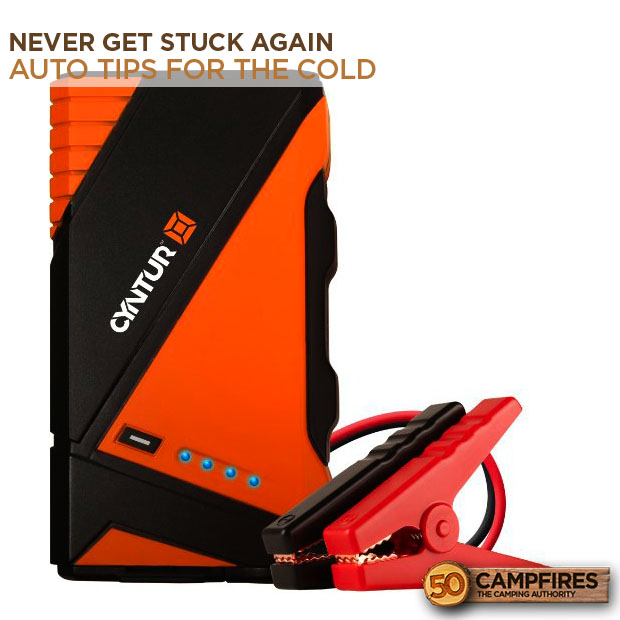
Cold Weather Gear
- Ice scraper – You need to see out of your windows.
- Collapsible shovel – Dig yourself out of a snow drift or to shovel gravel under your tires for traction.
- A Bag of Kitty Litter – this will do the trick to get you out of slippery terrain in most circumstances if there isn’t a random pile of gravel near by.
- Tire Traction device – Traction mats will work if you want to get something more reusable.
Pro tip: Spinning your tires will not help you. Instead of putting the petal to the metal when you’re on slippery terrain, try accelerating slowly, trying to prevent your wheels from slipping and losing traction.
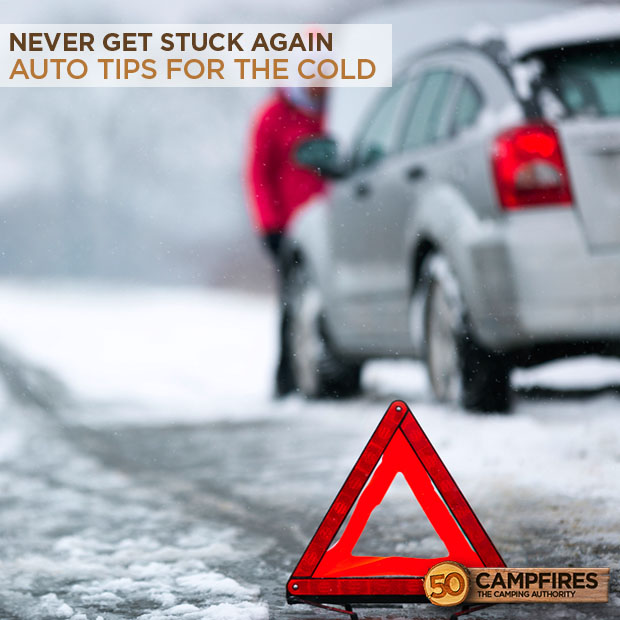
Safety and Survival
Make a 72 Hour Survival Kit
- A Flashlight, radio, seat belt cutter, window breaker tool – Ones like the Champ 8 in 1 Survivor Sidekick could be indispensable to keep accessible in the glove compartment (not in the trunk).
- First Aid – The Adventure Medical First Aid Kit is a great option.
- Fire starter – Zippo’s Emergency Fire Starter is a solid water resistant pack to keep handy.
- Multi-tool – Leatherman Wave is a popular option among multi-tool advocates.
- Water – You gotta keep hydrated.
- Food – with a long shelf-life .
- Flares/warning triangles – Most vehicles today come with them, but check your manual to see if they are included.
- Paper maps – You never know when your phone’s going to run out of juice.
- Blanket – In case you’re stranded in the cold winter months.
- Paper Towels, tissues or toilet paper – Any one can be substituted for the other. Something to wipe your face, your hands, or your bum.
- Pencil and paper – To write things down when your phone dies.
- Rain gear – Frogg Toggs offer a great value when it comes to price and durability.
- Emergency Money – Some rural shops don’t do plastic.
- Change of clothes – You never know when you’ll get soaked or muddy.
- Power bank – Since phones are survival tools in themselves it’s always best to have a product like the Kodiak Power Bank to recharge your phone.
Pro Tip: Today your phone can also be a survival device, but relying on electronics only lasts as long as batteries and signal reception. If you truly want to be prepared, switch your thinking to analog equipment such as paper maps, a radio, pencil, paper and physical currency.
